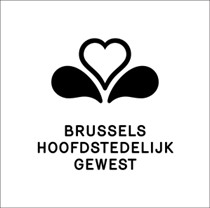Sharing and Learning Network LGBTQIA+ people in asylum procedure, on the run or on the move (2023-2026)
WAWY stands for “We Are With You.” Within the WAWY-project, several actors who support people on the run come together to coordinate the inflow and the referrals to existing support services for individuals at the intersection with gender and sexual diversity. These five partner organisations are:
- Merhaba asbl
- NANSEN asbl
- Rainbow Refugee Committee
- Hub Humanitarian
- Refugee Council Flanders
The ultimate goal of the WAWY-project is to provide faster, better and more coordinated support to LGBTQIA+ migrants and asylum seekers, the target group, by bringing together the expertise and the knowledge of the partner organisations. The needs these partners notice among the target group are collected in order to answer those needs in a systematic and efficient way.
The intersection of their identity characteristics makes the target group particularly vulnerable. In fact, LGBTQIA+ migrants and asylum seekers experience multiple forms of exclusion and oppression based on their perceived gender identity, sexual orientation and/or gender expression, migratory story, perceived origin, ethnic or cultural identity and current social situation in Belgium. Furthermore, they experience exclusion and discrimination not only in the wider society, but also within their own community (ethno-cultural, LGBTQIA+, fellow persons on the run, in transit, in the asylum procedure), within their family and among services and social workers.
The often inadequate treatment of applications for international protection from LGBTQIA+ persons, including sex workers, has already been documented, as have the sometimes disproportionately high refusal rates and the specific difficulties in substantiating these applications, especially with respect to the credibility of the asylum narrative (see https://www.sogica.org/en/the-project/). These observations have also been made in Belgium.
Besides that, the target group also faces the complexity of the legal and administrative system, as well as the vibrant but fragmented civil society landscape.
Therefore, the key to a solution to better address the needs of the target group is therefore also to encourage a solid basis of trust between the partner organisations, mutual learning and consolidation of the existing offer of services, including through referral of individuals.
Have any questions about this project? Contact: Merhaba (Dilshad Karaman, dilshad@merhaba.be) or NANSEN (Iene Maveau, imaveau@nansenrefugee.be)



